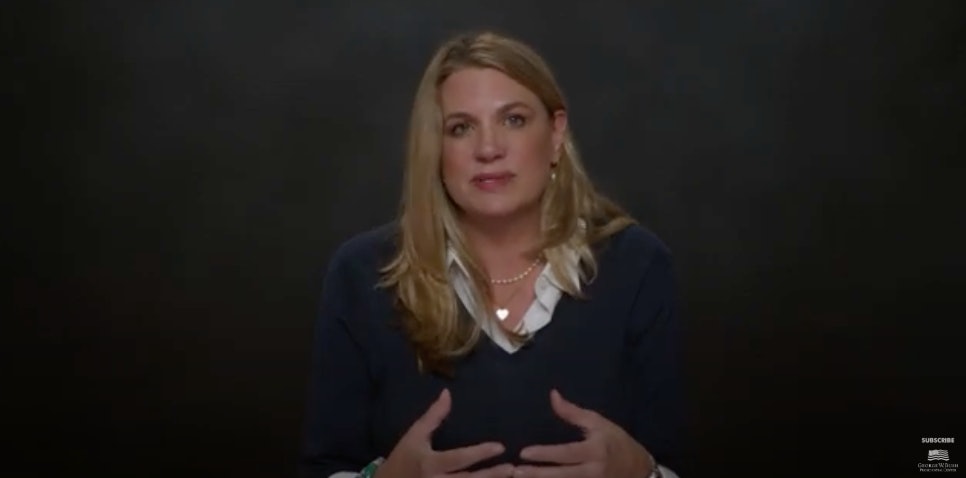Q&A with Dr. Amy Williams, Chief Clinical Officer at The Headstrong Project
Please tell us about The Headstrong Project’s mission and what motivates your work with veterans and military families.
The Headstrong Project is a nonprofit mental health organization providing confidential, barrier-free, and stigma-free PTSD treatment to America’s veterans, service members, and military family members connected to their care. Our goal is to help our clients “Triumph Over Trauma” by providing them with effective mental health treatment. When someone decides to join the military, they know they may pay a physical and emotional price to defend our country. Headstrong believes that this undertaking must be met by an equal commitment from our country to help when called upon to aid in healing.
Tell us about how you became involved in your work with veterans.
I have family members who have served, but my direct involvement in working with veterans started during graduate school. In 1993, I completed a summer practicum at a VA in Texas. I worked primarily with Vietnam veterans, though I also had the privilege of working with some World War II, pre-Vietnam, and Gulf War veterans. I was ignited by a sense of patriotism and gratitude to be able to help a community that had been treated so poorly upon their return. Over 30 years later, I still remember the stories of sacrifice made during combat. I also remember the hope that emerged as they began to heal. That summer, I walked away with a strong desire to continue serving the military community, especially in the area of PTSD, and I’ve been dedicated to that mission ever since.
What do you think makes the Veteran Wellness Alliance unique?
What makes the Veteran Wellness Alliance unique is its ability, through Check-In, to serve as a one-stop shop for veterans seeking mental health care and/or connections with peer-to-peer organizations. The Wellness Alliance removes the guesswork, which makes it more likely to get veterans into the right care in a shorter timeframe. Their care navigators know the organizations and can steer veterans in the right direction, taking the burden off the shoulders of the person seeking help.
The beauty of the VWA is also that no single organization has to do it all. Each member of the Alliance focuses on its areas of expertise, creating a collaborative, puzzle-like structure where each piece fits into a bigger picture. This means that veterans receive a more comprehensive response to their needs. Plus, the Alliance fosters collaboration between organizations, allowing them to share best practices and ultimately raise the bar for overall mental health.
What advice would you give veterans and their families who are searching for the right mental or brain health care?
Qualifications matter. Although many referrals happen through word of mouth, one of the challenges is that it can sometimes lead veterans toward treatments that lack solid evidence of effectiveness. Care seekers are bombarded with media and advertising that may guide people to options that aren’t scientifically proven, putting veterans at risk of wasting time, money, and energy on approaches that don’t address their needs or may even be harmful. The Veteran Wellness Alliance’s Check-In has already vetted the organizations to make sure they are using treatments supported by research. If seeking care on your own, take time to check credentials and ask about the primary interventions they use. There are professional practice guidelines that outline types of treatment and whether they are recommended. The VA website has educational resources for veterans interested in learning more about mental and brain health treatment options.
What tips can you give civilians and service members on ways to help a loved one as they work through mental health treatment?
For someone supporting a person going through mental health treatment, it helps to get basic education about the diagnosis. While everyone is different, having general facts and knowledge will help you be more sensitive to common needs. For instance, if you understand that crowds are difficult for those suffering from PTSD, you may not take it personally when your partner does not want to attend that live concert you’ve been wanting to go to! PsychArmor.org has free educational products for veterans and the people supporting them.
It is important to be supportive of and patient with your loved one. However, I cannot stress the importance of caring for your health and well-being. It is easy to get caught up in a loved one’s challenges and forget to put on your own oxygen mask first.
What are some new and ongoing projects you are excited about at The Headstrong Project?
At The Headstrong Project, we are focused on treating the impact of trauma. We are currently piloting ways to support the treatment of PTSD in an accelerated fashion – meaning we condense three or four months of therapy into less than one month. These intensive, fast-track treatments are showing great results and get people better faster.
We are also rolling out a family treatment program for those struggling with the impact of trauma. Supporting the whole family leads to better results for all involved and can prevent more significant problems down the road for partners and children of someone with PTSD.
Last, we are expanding in-person services. Currently in 17 states plus D.C., we plan to launch two new states in 2025! Every year thereafter, we plan to continue that growth of in-person services until, someday, we can offer in-person services in all 50 states to serve “Any Veteran, Anywhere!”
Learn more about the Veteran Wellness Alliance






























